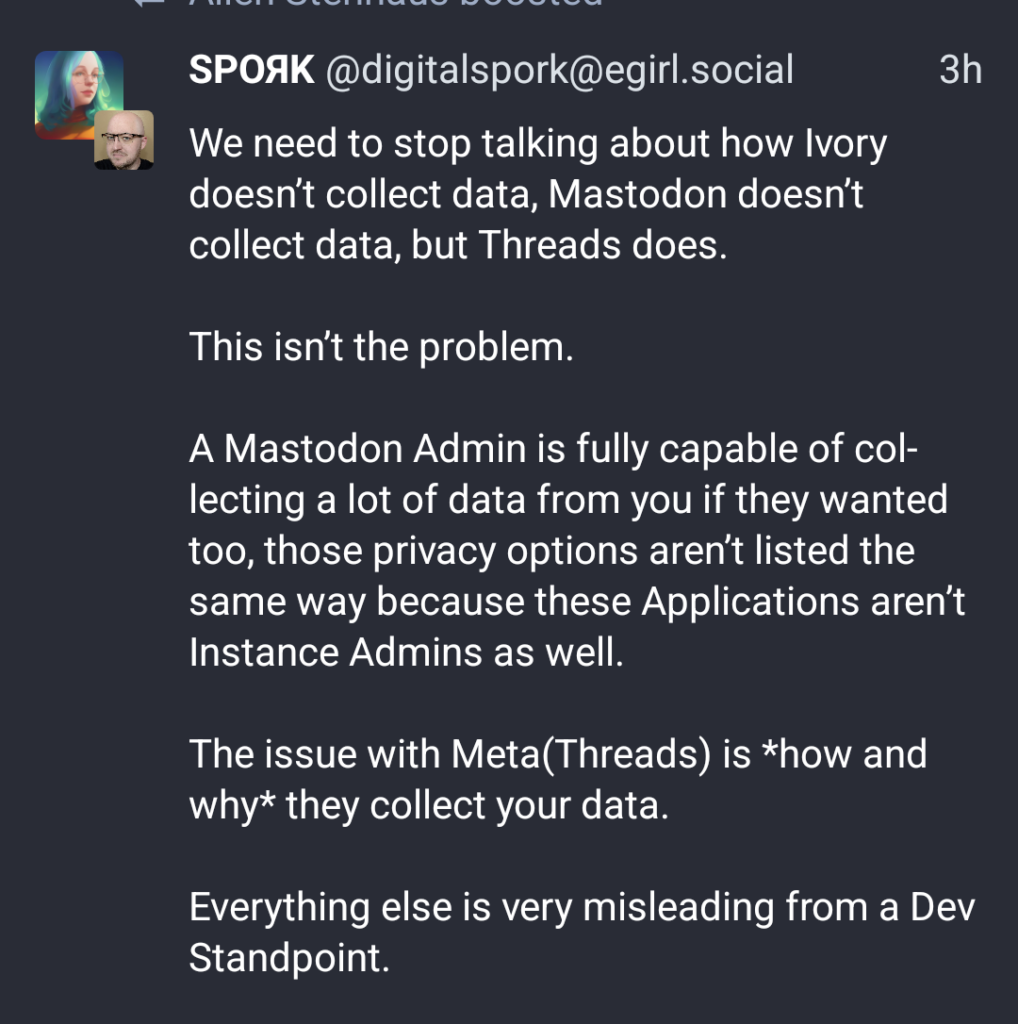
The rise of fediverse causing concerns, (Photo by AFP)
The fediverse is empowering users like never before, but concerns persist
- The fediverse decentralizes digital power, promoting user autonomy and privacy.
- Success of the fediverse hinges on smart decisions by digital advocates and users.
- User-defined rules and moderation could redefine the online world in the fediverse.
In the ever-evolving realm of digital innovation, the ‘fediverse’ has emerged, shaking the foundations of the online world. This term, coined from ‘federation’ and ‘universe,’ emphasizes autonomy, user empowerment, and privacy. The Fediverse, a revolutionary digital landscape, offers an alternative to centralized platforms dominated by tech giants, creating a new universe where power is redistributed back to the users.
At its core, the fediverse is a vast web of independent servers, interconnected in a way that challenges the conventional, monolithic approach where a single corporation controls a platform, amassing unparalleled power and control over user data. By decentralizing platforms and applications, the fediverse invites users to break free from the constraints of a solitary platform and interact across many instances, creating an infinitely expansive digital universe.
A significant charm of the fediverse is its extraordinary diversity. It’s more than just a microblogging platform or a social media site—it encompasses a myriad of digital platforms. From Mastodon, which is similar to Twitter, to PeerTube, akin to YouTube, and Pixelfed, a comparable alternative to Instagram, the fediverse caters to a wide range of preferences. Each platform is built on open-source software, promoting innovation, adaptability, and transparency. These platforms communicate through open protocols, predominantly ActivityPub, ensuring uninterrupted communication.
Watch the video below for a detailed explanation of Mastodon and fediverse:
A revolution in social media interaction
If you were among the 30 million individuals who swarmed to Threads on its launch day, you likely came across a concise explanatory page offering a glimpse of what this new social media application offers. The page clarified that Threads is a subsidiary of the Instagram platform and briefly touched upon the terms of service and privacy policy.
But a different portion of the Threads explainer sparked some users’ curiosity. It stated: “future versions of Threads will work with the fediverse, a new type of social media network that allows people to follow and interact with each other on different platforms, such as Mastodon.”
Admittedly, this explanation was quite terse. Fortunately, Meta has released a comprehensive overview of the fediverse and how it will operate in future iterations.
The vision, as detailed by Meta, is that “Threads will enable you to communicate with people on other fediverse platforms we don’t own or control. This means that your Threads profile can follow and be followed by people using different servers on the fediverse. Your content and information may be shared with those servers, for example, if you interact with content from other servers or if you have followers from other servers.”
Servers within the fediverse are scattered and decentralized. This means that modifications on one server may not impact others. Consequently, alterations to their posts will affect their appearance on Threads but may not change how they display on other servers. For example, if a post is deleted, it becomes invisible on Threads and prompts Threads to request other servers to remove it; however, the post might still be visible on servers over which Threads has no control. Additional information on privacy within the fediverse can be found in the Threads Supplemental Privacy Notice.
What does this imply for the average user? Truthfully, at the moment there’s nothing to worry about, but it signals Meta’s future roadmap for how user interaction will evolve on social media.
Within the ever-expanding realm of the fediverse, each user commands a remarkable degree of control and privacy. Given the freedom for individuals or organizations to host their servers, they can create rules and moderation strategies. Not satisfied with the oversight of their current instance? The fediverse is ready to serve. It allows them to switch to a new instance while keeping their existing connections within the fediverse.
This focus on user autonomy also extends to data privacy. Without a single, dominant entity gathering user data, the risk of data breaches or misuse decreases significantly. In the fediverse, the user, not the platform, manages their data— a concept rarely seen in the traditional digital realm.
Until recently, many social media users felt confined to choosing between digital domains, leading to many challenges.
Can the fediverse really do better?
Privacy is often a compromise with incumbent platforms. Users either accept the platform’s terms in full or delete their accounts. Despite platforms providing privacy settings, they still collect substantial amounts of user data, even with all settings disabled. This reliance on major platforms often results in surrendering control over personal privacy, security, and freedom of expression.
These companies also follow a common business model based on user tracking. This intrusive data collection not only violates privacy but also accumulates an excessive amount of sensitive data. This data, encompassing locations, friends, thoughts, and more, can be shared, leaked, sold, or used to make inferences that could seriously affect users’ lives.

A user commenting on Meta collecting data. (Source – Mastodon)
Even those knowingly allowing their data to be collected may overlook the potential risks. Consolidating sensitive data creates a volatile asset. A single security breach could put the privacy and safety of hundreds of millions of people at risk. Once collected, law enforcement can share or request the information, potentially leading to legal repercussions based on social media activities.
Additionally, the pervasive influence of social media has become burdensome for many users. Various platforms focus on enhancing features to sustain user interest, frequently overlooking the possible negative impact on mental wellbeing and societal conversation. As a result, misleading information, harassment, and online bullying are often left unchecked and proliferate.
There’s also the daunting task of effectively moderating global content. Content moderation stumbles on two fronts: first, users worldwide have noticed that platforms often fail to eliminate severely harmful content, including disinformation and incitement that contradicts the platforms’ own policies. Simultaneously, platforms erroneously remove various forms of essential expression, especially from those with less social power. To exacerbate matters, users are offered limited options for appeal or restoration.
These failures have led to increasing backlash. From both ends of the U.S. political spectrum, a rash of hasty legislation has emerged targeting the regulation of social media moderation practices. Outside the U.S., numerous “online harms” proposals have been observed, likely to worsen conditions for users, particularly the most marginalized and vulnerable, and fail to empower everyday people in their online lives significantly. In some regions, like Turkey, flawed legislation has become a reality.
How the fediverse can improve
Rather than striving to enhance social media, digital rights advocates, instance operators, coders, and others are presented with an opportunity. They can construct on top of an interoperable, open protocol, breaking free from the platform lock-in world we currently inhabit. This fresh beginning could foster more innovation and resilience for online communities, but only if prudent decisions are made today.
It should be made explicit that federated worlds are not inherently miraculous. The outperformance of a federated social media platform over the centralized incumbents will be because of conscious choices made by people to improve it, not due to technological determinism. Open, decentralized systems offer new options for a better online world, but making those choices is imperative.
The decisions operators and users of federated systems make will be of utmost importance in this context.
The fediverse, with its unique structure, promotes community and localized governance. Observations of its development reveal significant ideological and governance variations across Mastodon instances. Notably, Gab and TruthSocial, while not integrated into the ActivityPub network, are based on Mastodon forks. The fediverse also showcases a self-sorting behavior, with services choosing affiliations or exclusions based on user choices. This space has even witnessed ambitious attempts at user-controlled democratic governance of instances.
Ultimately, a social internet where users and communities define their own rules may provide better outcomes than depending on the whims of shareholders or single affluent individuals with bruised egos.

Individuals jumping on the fediverse space. (Source – Shutterstock)
Regarding the issue of content moderation, the fediverse inherently can’t ban users. However, each server owner has access to moderation tools and shared blocklists, enabling them to customize user experiences. Improvements in these approaches have already been seen. Collaborative efforts in moderation tools could encourage cooperation and healthy competition among instances based on the rules they set and how they enforce them.
For instance, operators shouldn’t have to start from scratch when protecting their users from bad actors. Yet, they should still maintain the option to make their own choices, even if these differ from other instances or blocklist maintainers. As a result, users have the freedom to choose which operators they can rely on.
Conclusion
The Fediverse presents a tantalizing glimpse into an alternative online universe where user autonomy, privacy, and diversity are paramount. However, its success is not preordained. It’s contingent upon the conscious decisions made by digital rights advocates, instance operators, coders, and users. Let’s move forward with care and commitment to create a more equitable and user-friendly digital universe.
READ MORE
- 3 Steps to Successfully Automate Copilot for Microsoft 365 Implementation
- Trustworthy AI – the Promise of Enterprise-Friendly Generative Machine Learning with Dell and NVIDIA
- Strategies for Democratizing GenAI
- The criticality of endpoint management in cybersecurity and operations
- Ethical AI: The renewed importance of safeguarding data and customer privacy in Generative AI applications


